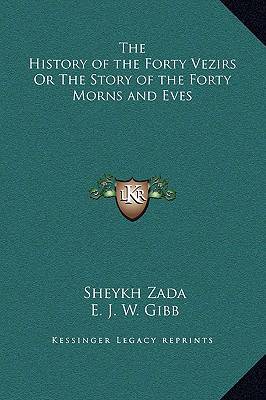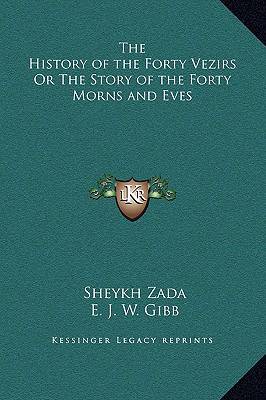
- Afhalen na 1 uur in een winkel met voorraad
- Gratis thuislevering in België vanaf € 30
- Ruim aanbod met 7 miljoen producten
- Afhalen na 1 uur in een winkel met voorraad
- Gratis thuislevering in België vanaf € 30
- Ruim aanbod met 7 miljoen producten
Zoeken
The History of the Forty Vezirs Or The Story of the Forty Morns and Eves
Sheykh Zada
Hardcover | Engels
€ 73,45
+ 146 punten
Uitvoering
Omschrijving
The History of the Forty Vezirs, also known as The Story of the Forty Morns and Eves, is a classic tale from Turkish literature. Written by Sheykh Zada, the book tells the story of a group of forty viziers who were unjustly executed by a tyrannical king. The viziers' wives and children are left to seek justice for their husbands and fathers, and they embark on a quest to find the truth behind the king's actions. Along the way, they encounter various challenges and obstacles, but ultimately they are able to uncover the truth and bring the king to justice. The book is a timeless tale of justice, perseverance, and the power of community, and it has been beloved by readers for centuries.1886. The following translation of the celebrated Turkish Romance generally known as the History of the Forty Vezirs, has been made from a printed but undated text procured in Constantinople. The frame of this book is the story of a king who, misled by the false accusations of his baffled and revengeful wife, orders the execution of his innocent son, a crime from committing which he is diverted by the wise advice of his chief councilor, only to be restrained again by the words of his second councilor, to be incited to it once more by the Queen, and so on.This scarce antiquarian book is a facsimile reprint of the old original and may contain some imperfections such as library marks and notations. Because we believe this work is culturally important, we have made it available as part of our commitment for protecting, preserving, and promoting the world's literature in affordable, high quality, modern editions, that are true to their original work.
Specificaties
Betrokkenen
- Auteur(s):
- Vertaler(s):
- Uitgeverij:
Inhoud
- Aantal bladzijden:
- 460
- Taal:
- Engels
Eigenschappen
- Productcode (EAN):
- 9781169346512
- Verschijningsdatum:
- 10/09/2010
- Uitvoering:
- Hardcover
- Formaat:
- Genaaid
- Afmetingen:
- 178 mm x 254 mm
- Gewicht:
- 1006 g

Alleen bij Standaard Boekhandel
+ 146 punten op je klantenkaart van Standaard Boekhandel
Beoordelingen
We publiceren alleen reviews die voldoen aan de voorwaarden voor reviews. Bekijk onze voorwaarden voor reviews.











